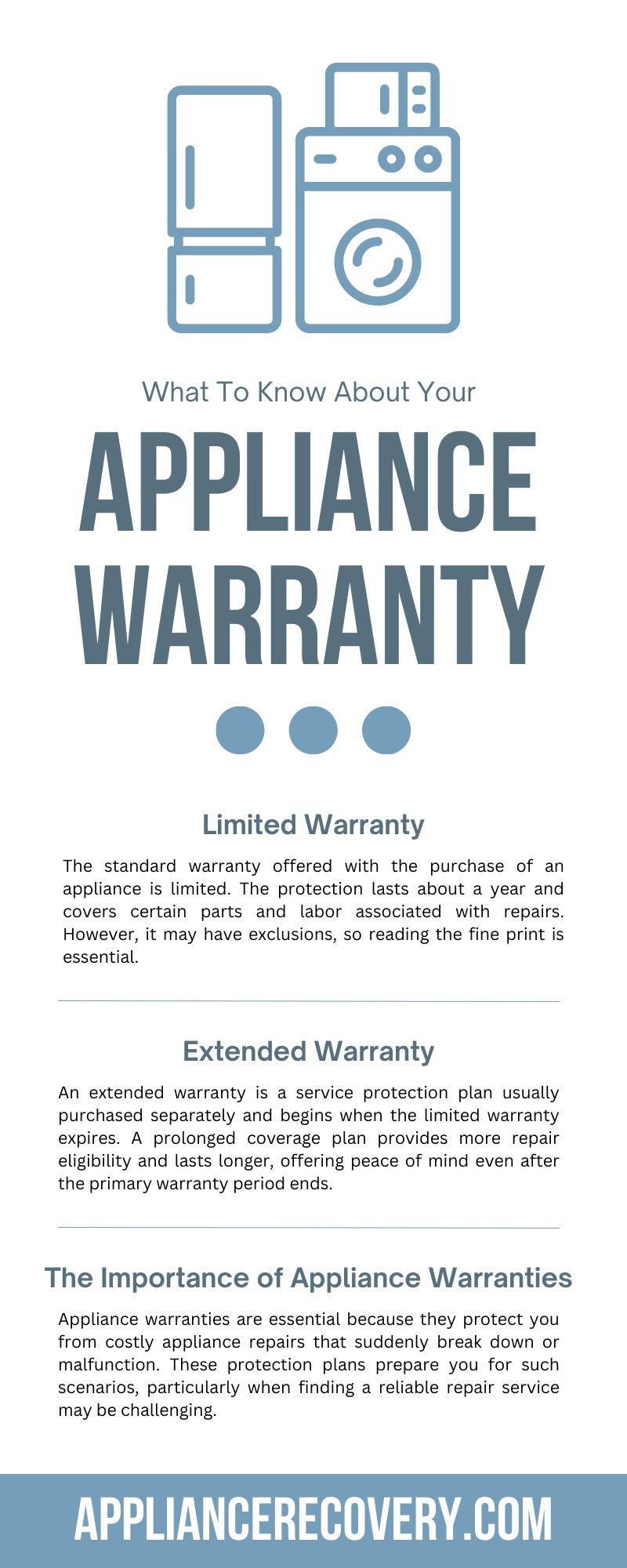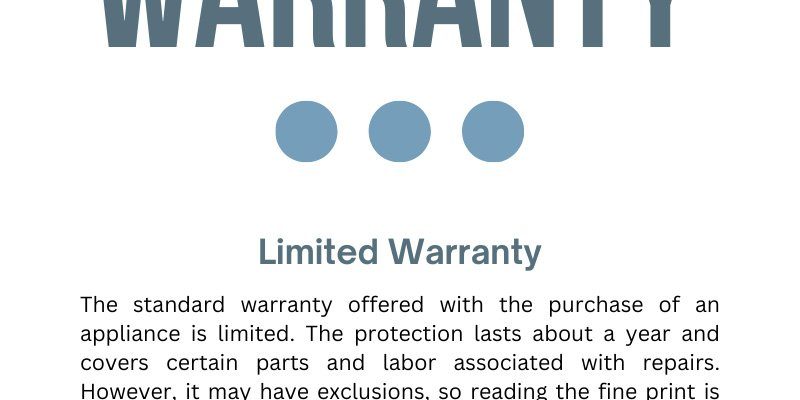
Here’s the thing: warranties can feel a bit like those “members only” jackets. Sure, the protection’s there—but is it just for the first person who buys it, or can the next owner zip it up, too? When it comes to GE laundry appliances, the answer isn’t always black and white. Let’s break down what’s actually possible, how the process really works, and where you might get stuck.
Buying used or selling your own GE washer or dryer is common, especially since these machines tend to last. It’s totally normal to want some peace of mind after a big purchase. So, can you transfer the warranty to the new owner? Let’s dive deeper.
How GE Laundry Appliance Warranties Work
When you buy a new GE laundry appliance—whether it’s a top-load washer, front-load dryer, or a fancy washer-dryer combo—you get a manufacturer’s warranty. This is basically GE’s promise: if your appliance breaks down due to a manufacturing flaw in the first year (or sometimes longer), they’ll fix it at no cost. It sounds simple, but there’s a bit more to it.
Most GE warranties are “limited warranties.” That means they cover specific problems and only for a set time frame, like one year on parts and labor, and sometimes longer for certain parts like the motor. The exact terms can vary, so it’s always smart to check the paperwork that came with your machine or visit the official GE Appliances website for warranty info.
You might be wondering: what happens if you bought an extended warranty or a service plan from the retailer? These plans—sometimes called “protection plans” or “service contracts”—can be separate from GE’s own warranty. The rules for transferring those are usually different and depend on the plan provider, not GE directly.
To sum up, the type of warranty (standard or extended) matters a lot when you’re thinking about transferring coverage to a new owner. Now, let’s see what happens when you actually sell or buy a used GE laundry appliance.
Are GE Laundry Appliance Warranties Transferable?
Here’s where things can get a little tricky. If you’re hoping to transfer the original GE manufacturer’s warranty to someone else, you might be disappointed. GE’s standard appliance warranty is generally tied to the original purchaser—meaning the person whose name and contact info are on the receipt.
In other words, if your buddy down the street buys your GE washer, the warranty doesn’t automatically follow along like a loyal dog. GE typically requires the warranty to stay with the original owner. If the appliance is given away or resold, the warranty protection usually ends. This can be a real letdown if you’re buying used or hoping to sweeten the deal as a seller.
But here’s a twist: some extended service contracts (like those offered by stores such as Best Buy or Home Depot) may allow warranty transfer, though you usually have to update the paperwork and pay a small fee. Each provider has its own rules, so it’s worth checking the fine print. However, the GE-branded manufacturer’s warranty itself isn’t designed for transfer between owners on most models.
In short: Don’t assume you’ll be covered as a second owner unless you have written proof from the warranty provider. Always check before you buy or sell.
What Does the GE Appliance Warranty Actually Cover?
Okay, so let’s say you’re the lucky original owner—or you just want to know what the fuss is about. GE laundry appliance warranties are pretty specific. For most washers and dryers, the basic manufacturer’s warranty usually covers:
- Parts and labor for manufacturer defects (usually for one year from purchase date)
- Some models may cover specific components (like the washer drum or dryer motor) for multiple years
- Repairs or replacement of qualifying defective materials or workmanship
But, as with all good things, there are limits. GE won’t cover:
- Damage from misuse, accidents, poor installation, or natural disasters
- General wear and tear—not covered under warranty
- Problems caused by using the wrong detergent, overloading, or not following care instructions
The warranty isn’t a magic fix-all. If you need troubleshooting help, GE’s support website can walk you through basic steps like how to reset, pair, or even replace batteries in your appliance’s display (if equipped). But those fixes won’t stretch the warranty to another owner—unfortunately, that rule is set in stone.
Steps to Check and Prove GE Warranty Status
If you’re the buyer (or the seller), it helps to know exactly what’s still covered—and what isn’t. You don’t want to find out your new laundry setup isn’t protected after something goes wrong, especially if you’re counting on that warranty for peace of mind.
Here’s what you can do:
- Find the original purchase receipt. The warranty clock starts ticking on the purchase date, and GE will want proof if you need service.
- Check the appliance’s serial number. You can usually find this on a sticker inside the door, behind a panel, or on the back.
- Visit the GE Appliances website and enter the serial number to check for remaining warranty coverage. Some stores may have their own lookup tools if you bought an extended plan.
- If you’re negotiating a sale, ask the seller for any paperwork or service contract info. If they can transfer a store protection plan, get the transfer steps in writing.
Pro tip: If you’re buying used, the receipt matters most. No receipt usually means no active warranty—even if the machine is technically “young.”
Can You Add or Extend Warranty as the New Owner?
You might be wondering: if you can’t transfer the warranty, can you just buy new coverage as the next owner? Honestly, it depends on timing and the provider.
Most of the time, GE won’t let you add extra warranty coverage to a secondhand washer or dryer once it’s already in use. The original protection is only available to the person who bought it new. But there are a few exceptions:
- Some third-party companies offer appliance protection plans even on used gear, if it passes an inspection first.
- Retailers sometimes sell service contracts on “open box” or “certified pre-owned” appliances—but you’ll need to ask before you buy.
- If you’re within the first 30 days of the original purchase, you can sometimes add an extended warranty—but that window closes fast.
If you’re into DIY fixes and troubleshooting, you might be able to handle simple repairs yourself. But for major issues, having some kind of warranty or service plan is peace of mind—especially with the high cost of modern washer and dryer components.
Alternatives to a Transferrable Warranty
Let’s say the GE warranty isn’t transferable—what other options do you have? Don’t panic. Here are a couple of backup plans that can still keep you (and your laundry) out of trouble:
- Home warranty plans: If you own a home, you can often buy a year-round warranty plan that covers all your appliances, even if they’re used.
- Third-party appliance insurance: There are companies that offer “protection plans” for used appliances after a quick inspection and, of course, a fee.
- Self-insure with a rainy day fund: Sometimes the smart move is to set aside a little cash in case you ever need repairs or replacement parts. It’s not glamorous, but it beats being surprised.
If the only thing stopping you from buying a great used GE washer or dryer is a transferable warranty, don’t let it be a deal-breaker. There are ways to protect yourself and your investment—even if the original warranty stays with the first owner.
Tips for Selling or Buying Used GE Laundry Appliances
Here’s where a little practical wisdom goes a long way. Whether you’re selling or buying, there are some steps you can take to make sure everyone knows exactly what’s covered—and what isn’t.
- Sellers: Be upfront about the warranty status. If it’s not transferable, say so. If you have an extended plan from a retailer that allows transfer, provide those details and help with the paperwork.
- Buyers: Always ask for the receipt and any service plan documents up front. Try to do your own “inspection”—run a load or two, check for obvious issues, and look for signs of recent repairs.
- Both parties: Get everything in writing, just in case. It’s not about not trusting someone—it’s about protecting everyone’s interests for peace of mind.
Remember, a little honesty goes a long way. Surprises are for birthday parties, not for big appliance purchases.
The Bottom Line: GE Laundry Appliance Warranty Transfers
So, can you transfer a GE laundry appliance warranty to a new owner? Usually, no—the standard manufacturer’s warranty sticks with the first buyer. The only real exceptions are for certain extended protection plans from retailers, and even then, you’ll need to check the rules and be ready for a paper trail.
Here’s the silver lining: even without a transferable warranty, GE laundry appliances are typically reliable and repairable, with plenty of troubleshooting help online. If you’re buying used, focus on the condition of the machine, get the paperwork if you can, and consider third-party protection if it helps you sleep better at night.
In the end, buying or selling a GE washer or dryer doesn’t have to be stressful. Just go in with your eyes open, ask a few smart questions, and you’ll be ready to handle whatever spin cycle life sends your way.
